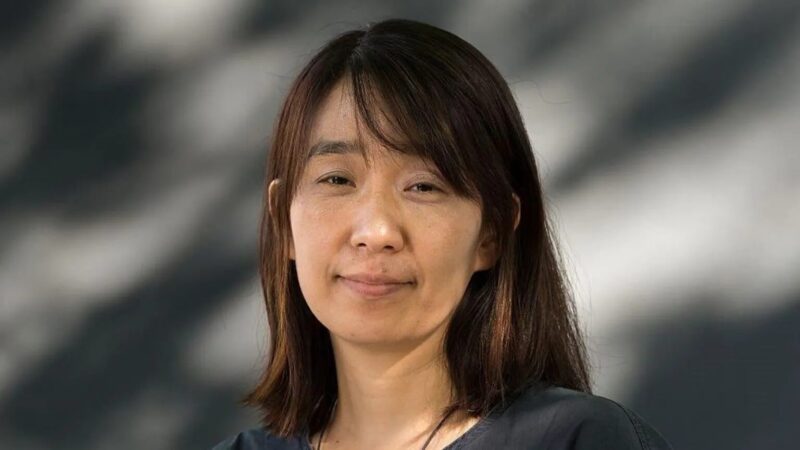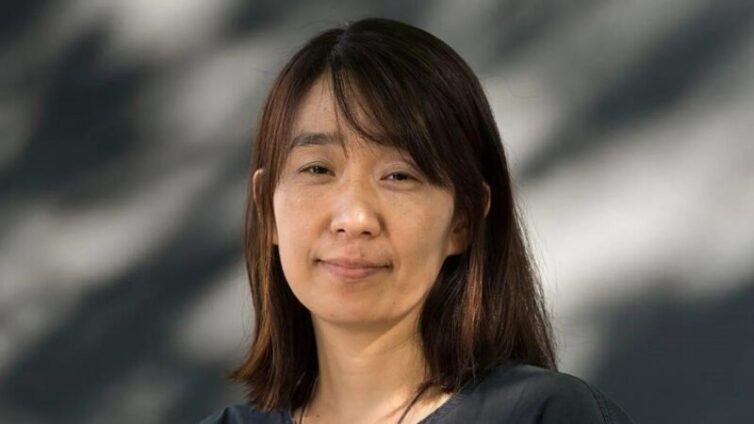South Korean author Han Kang has won the Nobel Prize in Literature.
The 53-year-old fiction writer is a former winner of the Man Booker International Prize for her 2007 novel The Vegetarian.
At the ceremony, she was praised “for her intense poetic prose that confronts historical traumas and exposes the fragility of human life”.
The Nobel Prize committee has awarded the literary award since 1901 and this marks the 18th time a woman has won the prize.
She has won 11m krona (£810,000) which is the amount awarded to each Nobel Prize winner this year.
Han is the first South Korean winner of the prize, who was described by the Nobel Prize board as someone who has "devoted herself to music and art".
The statement also added that her work crosses boundaries by exploring a broad span of genres - these include violence, grief and patriarchy.
A turning point for her career came in 2016, when she won the International Man Booker prize for The Vegetarian - a book which had been released nearly a decade before, but was first translated into English in 2015 by Deborah Smith.
It depicts the violent consequences for a woman who refuses to submit to the norms of food intake.
Han's other works include The White Book, Human Acts and Greek Lessons.
Swedish Academy permanent secretary Mats Malm said at the ceremony that "she wasn't really prepared" to win the prize.
Committee chair Anders Olsen also said she "confronts historical traumas and invisible sets of rules and, in each of her works, exposes the fragility of human life".

He praised her "poetic and experimental style", and called her "an innovator in contemporary prose".
The chair added she has "unique awareness of the connections between body and soul, the living and the dead".
Han is the first female recipient of the literature prize since 2022, when it was awarded to French writer Annie Ernaux.
She is also the first female Nobel laureate this year.
The prize is awarded for a body of work, rather than a single item - there is no shortlist and it is notoriously difficult to predict.
Han is the daughter of novelist Han Seung-won and was born in the South Korean city of Gwangju.
She moved to capital Seoul at a young age and studied Korean literature at a university in the city.
Her first published works were five poems in 1993, and she made her debut in fiction the following year with a short story.
Han, who has taught creative writing at the Seoul Institute of the Arts and is writing her sixth novel, has been published in more than 30 languages.
Last year's prize was won by Norwegian writer Jon Fosse, and previous winners include Toni Morrison, Doris Lessing, Kazuo Ishiguro, Gabriel Garcia Marquez and Bob Dylan.
Latest Stories
-
I want to focus more on my education – Chidimma Adetshina quits pageantry
2 hours -
Priest replaced after Sabrina Carpenter shoots music video in his church
3 hours -
Duct-taped banana artwork sells for $6.2m in NYC
3 hours -
Arrest warrants issued for Netanyahu, Gallant and Hamas commander over alleged war crimes
3 hours -
Actors Jonathan Majors and Meagan Good are engaged
3 hours -
Expired rice saga: A ‘best before date’ can be extended – Food and Agriculture Engineer
3 hours -
Why I rejected Range Rover gift from a man – Tiwa Savage
3 hours -
KNUST Engineering College honours Telecel Ghana CEO at Alumni Excellence Awards
4 hours -
Postecoglou backs Bentancur appeal after ‘mistake’
4 hours -
#Manifesto debate: NDC to enact and pass National Climate Law – Prof Klutse
4 hours -
‘Everything a manager could wish for’ – Guardiola signs new deal
4 hours -
TEWU suspends strike after NLC directive, urges swift resolution of grievances
4 hours -
Netflix debuts Grain Media’s explosive film
5 hours -
‘Expired’ rice scandal: FDA is complicit; top officials must be fired – Ablakwa
5 hours -
#TheManifestoDebate: We’ll provide potable water, expand water distribution network – NDC
5 hours

